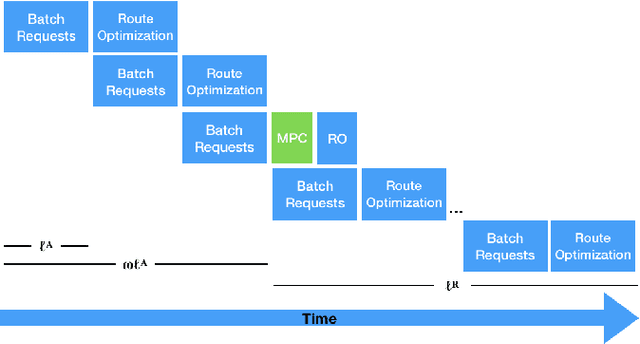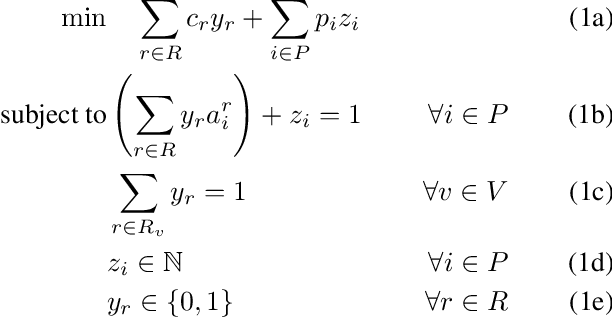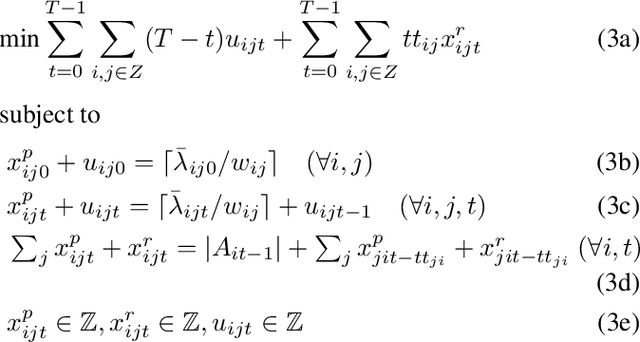Real-Time Dispatching of Large-Scale Ride-Sharing Systems: Integrating Optimization, Machine Learning, and Model Predictive Control
Paper and Code
Mar 24, 2020



This paper considers the dispatching of large-scale real-time ride-sharing systems to address congestion issues faced by many cities. The goal is to serve all customers (service guarantees) with a small number of vehicles while minimizing waiting times under constraints on ride duration. This paper proposes an end-to-end approach that tightly integrates a state-of-the-art dispatching algorithm, a machine-learning model to predict zone-to-zone demand over time, and a model predictive control optimization to relocate idle vehicles. Experiments using historic taxi trips in New York City indicate that this integration decreases average waiting times by about 30% over all test cases and reaches close to 55% on the largest instances for high-demand zones.
 Add to Chrome
Add to Chrome Add to Firefox
Add to Firefox Add to Edge
Add to Edge